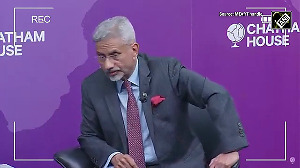Part I: Top GRE FAQs answered!
Yesterday we looked at FAQs regarding the basics of the GRE and what it's all about. Today, Atul Prashar, examination expert from TCYonline, takes a closer look at the various sections of the GRE and scoring patterns.
What are the recently introduced changes in the GRE pattern? How are they going to affect test takers?
GRE test takers experienced the new question types introduced in November. The introduction of new question types in the Sentence Completion and Quantitative sections was a well planned and systematic move by the Education Testing Service (ETS) after their withdrawal of the proposed sudden and big changes in April 2007 worldwide earlier.
The changes occurred in the form of (at most) one question each (either there will be one question of new type or none) in the Quantitative reasoning and Verbal reasoning modules of the test. The following table summarises the changes:

Implications
~ In the quantitative section, the format of the required answer has undergone a change. That is, instead of clicking on the right answer choice from the multiple choices, the test taker will type the answer in the box provided. The implication is that the test taker has to be doubly sure of the answer because there will be no answer choices in the question.
~ The change in RCs is a welcome change. The students will now be able to find the relevant text in the highlighted form and spotting the right piece of information for answering questions will become easier than it was earlier.
~ Earlier the test takers were able to guess out the answer by simply working out one best fit. They could also proceed by trial and error. They cannot indulge in any such speculation any longer.
There will now be three options available for each blank and each set is independent of the others. What is worse, there is no partial credit even if the test taker is able to get the right fits for two blanks, but not for the third. In effect this becomes a set of two or three inter-related questions, each of which has to be answered right if credit is to be received.
How should one strategise the preparation for Quantitative reasoning section?
Here's a summary of the strategies required for tackling GRE's quantitative comparison section with following points:
~ Assumption is the greatest enemy in GRE Quant. It is very important not to assume anything. Restricting yourself to the given hypothesis is the only good way to avoid the trap in the question.
~ The focus should be on comparing the answer choices rather than doing lengthy calculations.
~ The answer format is a standard one and practicing it well saves time and energy in the actual GRE.
~ The questions in this section have common mathematical traps; hence it is recommended that one should re-check and confirm the answer before registering it.
What is the most effective way to build a great vocabulary?
Our TCYonline expert suggests three strategies for the same:
(A) Imagination: This method requires the learner to attach an image with the word. In other words, symbolising a word is the key here.
(B) Association: Here, the skill to associate the given words with the known words plays a vital role. Association is highly effective if used carefully. The words can be associated by their structure, usage, meaning and pronunciation
(C) Vernaculisation: This technique is one of my most preferred when it comes to learning new words for which you cannot find any imaginary or associative source. Vernaculisation is simply the technique that our experts derived when they found out that an easy way to learn a particular word was to relate it to something that one could use in one's mother tongue.
How to manage the time factor in the Reading Comprehension section of the Verbal reasoning section?
RC questions are never based on the TOTAL contents of the passage; they are rather based on the main idea(s) or gist of the individual stanzas. So the strategy is not to read for words, but for ideas. The solution lies in reading with varying speeds: rushing through the chaff, but slowing down at the grain (main and/or supplementary idea).
Moreover, bear the central idea in mind while answering the questions, because the right answers will revolve round the main idea and will concatenate. Also look for extreme answers and half-truths as they are more likely to be distracters.
What is the most challenging component of GRE and what should be done to manage it effectively?
The most challenging component of GRE is the fact that it is a Computer Adaptive Test. That is, the test adapts itself to the test taker's intelligence. Moreover, the individual score per question decreases as one advances in the test and one can not move to the next question unless s/he answers the previous one.
What worsens the situation is the fact that all the questions are important to be attempted and an un-attempted question bears huge penalties.
The best way to counter this challenge is the fact that each kind of question is important and efforts must be made to make sure that the initial questions of each kind are marked correct.
Taking more and more simulated tests is the key to master this skill. Another important input is to make sure that you have understood and practiced the concepts well before taking the simulated tests. You may find thousands of such tests on www.TCYonline.com.
What is AWA and how much is it important?
AWA stands for Analytical Writing Assessment. It is the test taker's ability to think critically at the given situation or problem and write using one's analytical abilities together with the proficiency in the language. It is graded on the scale of 6.
The AWA section has recently got a fillip from the ETS and the universities as the standard format to compare the level and appropriateness of the language used in the admission documentation with that in the analytical writing tasks in the GRE. This is done to ensure that student do not take help to have their SOPs, essay and other documentation prepared solely by the professionals that otherwise is expected to reflect the individual's original ideas and thoughts.
What is a fairly good, a bad and an excellent score in GRE?
There is no good or bad GRE score. Moreover, GRE is not the sole admission criterion as discussed earlier. Everything depends upon the universities one is applying for.
If the target university requires 1370 or above in GRE, one has to aim for 1370 and above. For him 1370 is the excellent score. However, for admission to top 10 universities of the USA, one has to aim for 1400 and above together with a good and aggressive academic record and sound documentation.
Part I: Top GRE FAQs answered!
Further queries related to the GRE can be addressed to Atul Prashar at atul@tcyonline.com. Visit www.tcyonline.com for FREE online and downloadable tests related to GRE, GMAT, SAT and CAT.






 © 2025
© 2025